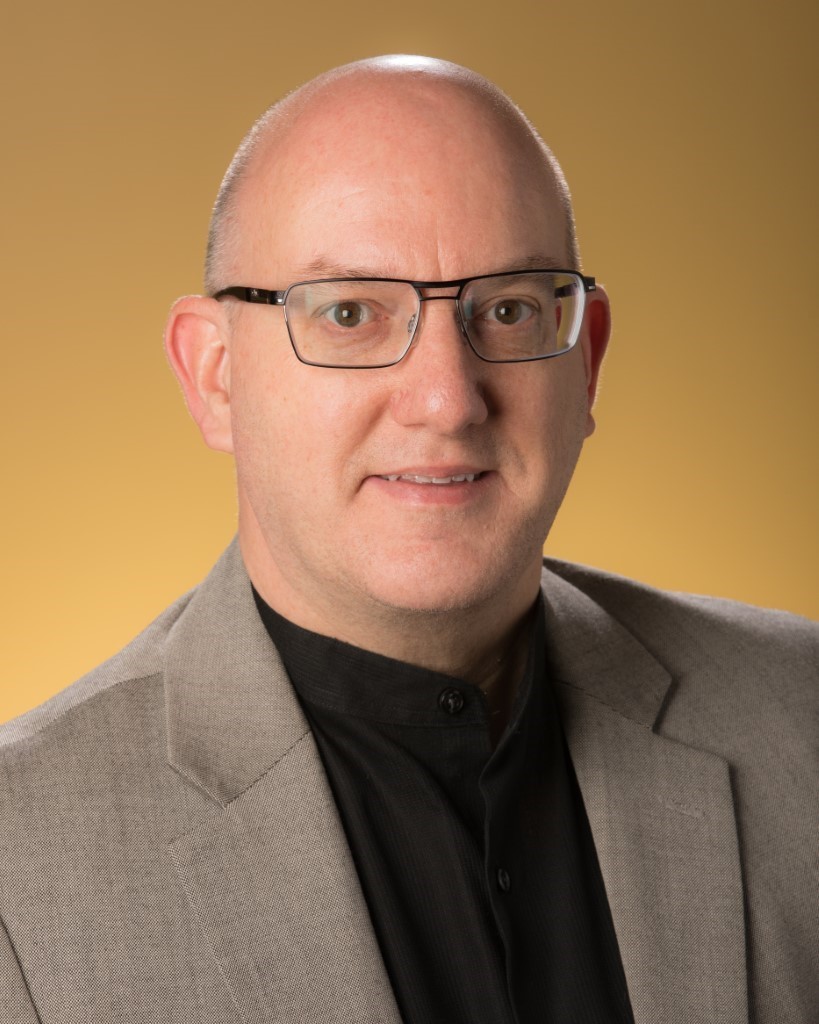Dual Roles of Administrators
Architecture Dean Promotes Universal Design Through Observational Research
BY LANDON MION & GEENA LAWRENCE
KENNESAW, Ga. (Jun 2020) — Andrew Payne, who joined KSU as dean of the College of Architecture and Construction Management in January 2020, found his interest in architectural research through his desire
to want people to enjoy the space in which they occupy.
“Through observation, I can see the serious impact that architectural spaces have
on a person’s attitude,” said Payne, also a professor of architecture. “For example,
my involvement in higher education has led me to notice that classroom spaces do not
always support learning, so I have started to research possible architectural designs
that create a more comfortable and flexible environment for students and teachers.”
Payne’s research involves observing people in their environment to better understand
how a design  can be implemented for the use by people with ranging abilities. Universal design
is a niche that focuses on the design of buildings, products or environments to make
them accessible to all people, regardless of age, disability or other factors. For
example, a delivery driver using a dolly and a person using a wheelchair have differing
abilities, but both need to utilize a ramp.
can be implemented for the use by people with ranging abilities. Universal design
is a niche that focuses on the design of buildings, products or environments to make
them accessible to all people, regardless of age, disability or other factors. For
example, a delivery driver using a dolly and a person using a wheelchair have differing
abilities, but both need to utilize a ramp.
“I became a designer because I have always appreciated building designs and since
my dad was a contractor, it has always been a part of my life,” he said. “I was very interested
in architecture and it fed into my creative and artistic mind. Engineering and art
were my main interest areas in high school when I was exploring career options, and
those combined made architecture an obvious choice.”
Observing a variety of people and having the opportunity to learn about people with
different backgrounds is what Payne said makes his research interesting and enjoyable.
He was also interested in how architecture impacts social groups, diverse groups,
and looking into buildings designed for certain groups. Additionally, he was fascinated
with the unknown and personal aspect of his architectural research.
Payne became a researcher because he felt he could have an impact on people’s lives
by creating better designs. He said that creating better designs comes through research
in finding out what works and what needs improvement. Architectural design can
have a serious impact on people’s attitudes toward the place, so he feels his
research is very important.
“I want to continue to contribute my expertise to the field, whether it be in a classroom
in a teaching environment or again as a consultant to a client,” said Payne. “There
are always opportunities for new research to be generated but I really enjoy doing
work for clients where the result is going to be a real-world scenario and I know
we can implement real change.”











